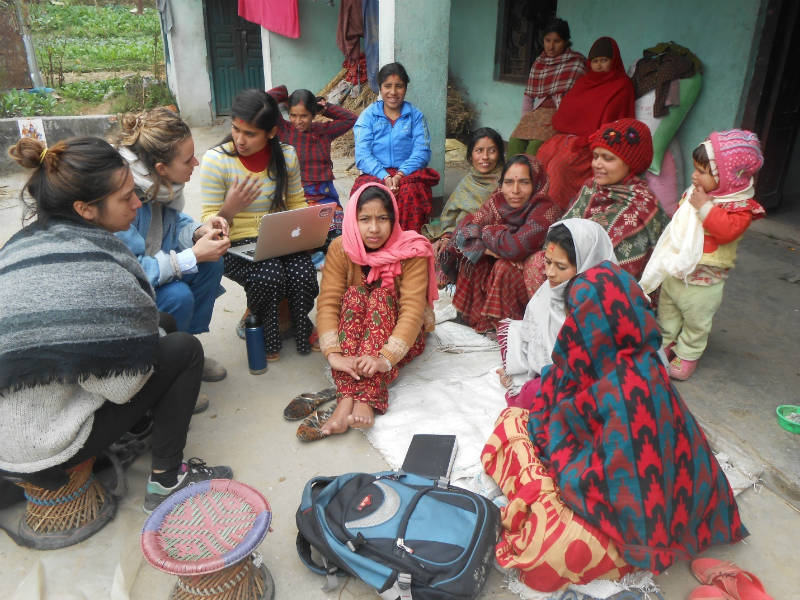Volunteers from VIN Simone Bodmer-Turner and Violette Lamotte have completed Stage 1: Educating people about Chemical vs Organic Farming and Compost Bin Building
Day 1: Meet community, talk to them about the harms of chemical farming, educate them on the need for organic farming for longevity of crops, land, and health. Ask for member of community to volunteer a piece of their land and materials to demonstrate a compost bin practical. Scout location and materials, make sure ground it flat, away living quarters, easy to access with compost-able materials and water.
Day 2: Build compost three part compost bin with available materials. Once bins are complete, organize community to demonstrate how to compost with layers of hay/vegetable and garden scraps/cow and chicken excrement.
We were able to build Compost bin in three locations Kisendol, Phedi and Gairiguaun.
Kisendol: Plenty of scrap tin to build, some wood available of varying quality. Most was fine, some was in pretty bad shape but we used it anyway. The original location we had planned to build on, which was perfectly flat, and several meters from the house turned out to be where a water line was buried, so we found out we couldn’t use that space when we arrived on Day 2. Built closer to the house than we would have liked, but turned out well. The community mainly had cow manure and hay to compost, some scraps from the garden, and said that they would collect cow pee as well.
Phedi: VIN provided the tin for the construction of the bins because the family didn’t have any. This is the only time we are able to provide the metal, unfortunately. We used halved and whole bamboos for the posts. Turns out the whole bamboo worked better. With the help of the local volunteer, we developed a new technique for building more quickly. Instead of hammering in all the posts and then attaching the tin, we attached the tin to its posts on the ground and then put the three-part bin system together in segments. The community didn’t have cow manure, but had leftover fertile dirt that was hay, broken down by mushroom spores, contained in plastic bags which were previously used to grow mushrooms. We used this with hay and vegetable scraps.
Gairiguaun: Only had two pieces of satisfactory metal, and two very rusted pieces. We used these and bamboo we cut from the side of the road. We again used the method of building the bins in parts on the ground, and then connecting them. This time we were able to use 8 posts instead of 10 by having the corner pieces be connected with the same piece of bamboo. We will use this method in the future, as it worked very well. Unfortunately, the rusted sheets of metal kept breaking when we moved them, so we re-nailed and tied them together with twine. The community had cow manure, chicken droppings, decomposing hay, some vegetable scraps, and cow pee to build the pile.
Community people have given good attention towards the program and were very thankful that VIN and international volunteers helped them learn this new concept of Organic Farming.


 Member of
Member of